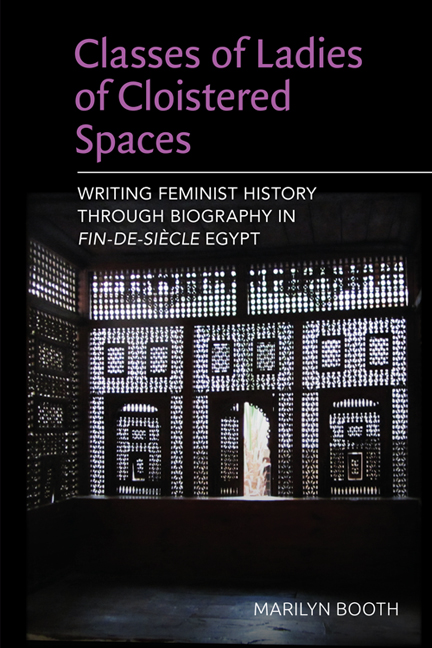Book contents
- Frontmatter
- Contents
- Acknowledgements
- Dedication
- I Pearls Scattered: An Introduction
- II A Women's World History, in the World of Arabic Letters: A Reader's View
- III Founding Mothers, Speaking Sisters: Lineaments of Community in History
- IV Writerly Pursuits: A Compiler's Archive
- V A Beckoning Compass, Circulating Lives: The Bustani Encyclopedia and Other Nineteenth-century Sources
- VI Interlocutors? Men Authoring Women's History in the 1890s
- VII Framing a History of the Present: or, Did the Pearls Scatter to the World's Fair?
- VIII Violent Romances: The Bodily Drama of Patriarchal Trauma
- Conclusion: A World of Women, Feminist History and the Importance of the Feminine Signature
- Appendix I: Translations
- Appendix II: List of Fawwaz's Pearls
- Notes
- Bibliography
- Index
VII - Framing a History of the Present: or, Did the Pearls Scatter to the World's Fair?
Published online by Cambridge University Press: 05 August 2016
- Frontmatter
- Contents
- Acknowledgements
- Dedication
- I Pearls Scattered: An Introduction
- II A Women's World History, in the World of Arabic Letters: A Reader's View
- III Founding Mothers, Speaking Sisters: Lineaments of Community in History
- IV Writerly Pursuits: A Compiler's Archive
- V A Beckoning Compass, Circulating Lives: The Bustani Encyclopedia and Other Nineteenth-century Sources
- VI Interlocutors? Men Authoring Women's History in the 1890s
- VII Framing a History of the Present: or, Did the Pearls Scatter to the World's Fair?
- VIII Violent Romances: The Bodily Drama of Patriarchal Trauma
- Conclusion: A World of Women, Feminist History and the Importance of the Feminine Signature
- Appendix I: Translations
- Appendix II: List of Fawwaz's Pearls
- Notes
- Bibliography
- Index
Summary
Fawwaz's title and preface enfolded her biographies in a casing of generic respectability, and historical and doctrinal precedent, while introducing a different kind of historical commentary on women mounted through the insistently meaningful use of conventional imagery. Preface and title hailed a hoped-for reading community of Arabophone women, rabbat al-khudur, who could travel into other lives in the seclusion of their quarters. But these were not the only paratextual gateways to the biographies.
Women and men lauded Fawwaz's volume in print, both in epitexts (newspaper announcements and advertisements) and in peritextual praise (texts published with the volume itself). In a venerable conventional practice, colleagues provided laudatory texts for publication in the volume – the 1890s equivalent of today's back-cover or overleaf endorsements. These well-known reader-writers’ blurbs were invocations and poems printed at the front of the book. A ‘benediction’ from the publisher-printer ended it, with his certification of the actual date on which printing was complete, a colophon extended into an elaborate letter of recommendation, gratitude and explanation. Thus, employees of the publishing house did some of this publicising work.
Says the servitor of corrections to learned works [khadim tashih al-‘ulum] at the splendid publishing house in Bulaq Misr al-Qahira, the one in need of God Almighty, Muhammad al-Husayni, may God aid him in performing his duty with adequacy and care (550).
As conventional as it was, ‘signing off’ with praise for an author or sending in a taqriz (encomium-blurb), could bolster the author's stated intentions for the book or draw out unstated themes and felicities. In this chapter, I consider Pearls Scattered enframed, first through these paratextual gifts. Next, I discuss Fawwaz's decision to feature women's texts to bolster her project, and how they become substantive additions to her historiography. Finally, I examine her locally disseminated attempt through written communication to participate in a major world event, the 1893 World's Columbian Exposition in Chicago. If this attempt likely failed concretely, it served rhetorical purpose locally.
- Type
- Chapter
- Information
- Classes of LadiesWriting Feminist History through Biography in Fin-de-siecle Egypt, pp. 247 - 293Publisher: Edinburgh University PressPrint publication year: 2015



